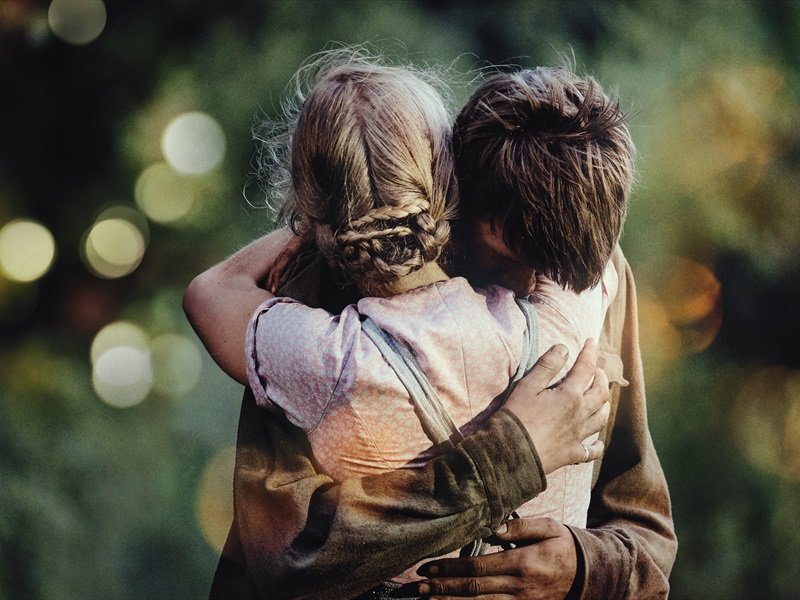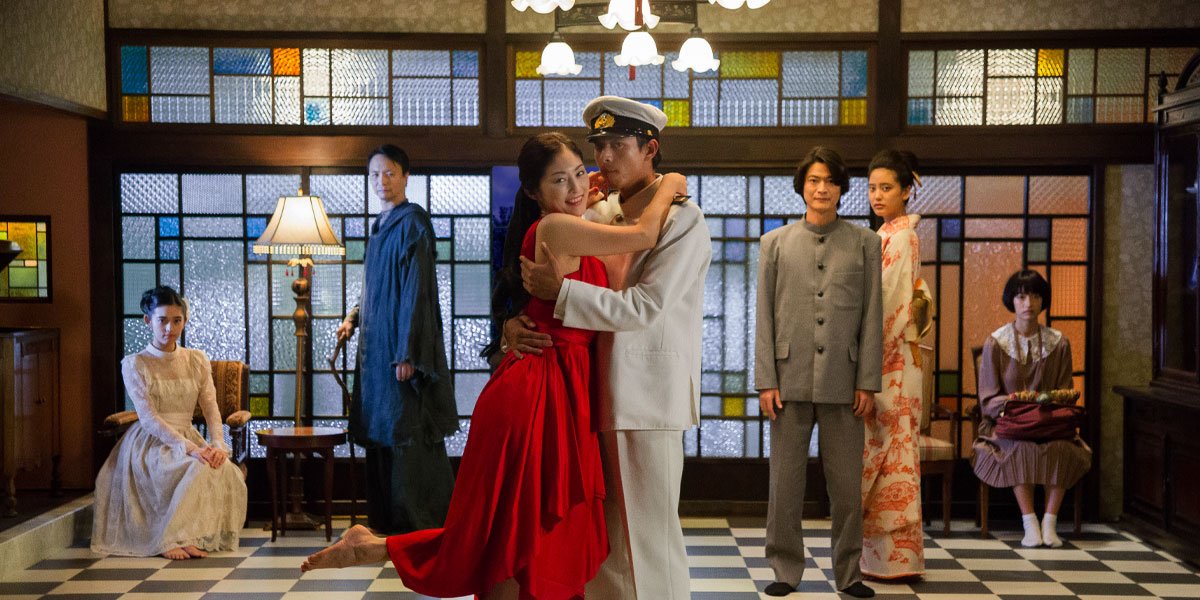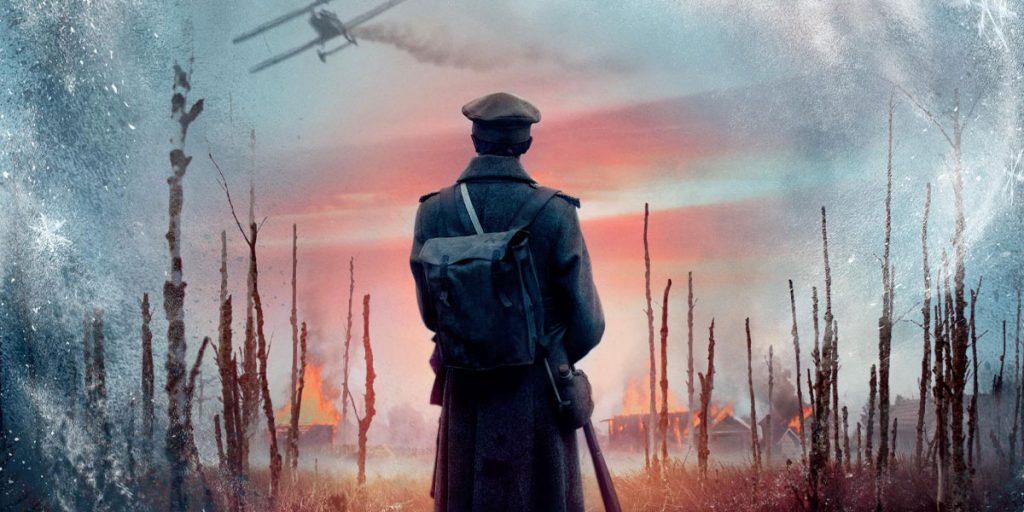Based on a novel that was forbidden in the Soviet Union, The Rifleman shows us the heartbreaking events and brutal realities of WWI through the innocent eyes of a young Latvian boy.
The Rifleman is a WWI drama seen through the eyes of an ordinary 17-year-old farm-boy who becomes a soldier and grows up on the battlefield. What makes Latvian director Dzintars Dreibergs’s war drama unique is that it is adapted from the 1934 novel Blizzard of Souls, written by Aleksandrs Grins, a WWI survivor who documented his memories and frontline experiences through the character of Arturs Vanags (Oto Brantevics). Grins’ novel was banned in the Soviet Union for 60 years, and Dreibergs’ adaptation was so well received in Latvia that it has become the highest-grossing film in the country in the last 30 years.
Uncertainty is a constant state of the war, and Dzintars Dreibers knows it well. Nobody knows what is happening and what is going to happen next, and The Rifleman captures this uncertainty by opening in media res and instantly diving into a battlefield that is full of action, fear and death. By doing so, Dreibers creates suspense, tension and a hectic atmosphere that leaves the viewers confused but excited for the following events. Later on, we slowly get to know the circumstances that are connected to the leading character of this story, an ordinary seventeen-year-old who, as obvious as it may sound, provides us with a truly new view on the First World War. As Arturs joins the army, we experience pain and elation with him, witnessing all of the events with his eyes. This makes it easy for us relate to something that would have otherwise been very hard to relate to – war, in all its horrors and brutality.
Childhood ends quickly for Arturs, as he becomes aware of the need to defend his people from the German army that is about to destroy every living thing in his country. Arturs is just a child: he is underage and he has never properly held a rifle before. When he enlists into one of Latvia’s first national battalions, he is joined by his brother Edgard (Raimonds Celms) and his father Vanags (Martins Vilsons), a former marksman who would have normally been overage for the army. Throughout the film, we observe Arturs grow up with a gun on the battlefield instead of going to school and spending time with his family and friends, like a normal seventeen-year-old would do. Like every other soldier, Arturs has to fight with the thought that his life might come to an end any second: he is a captivating character who keeps evolving throughout the story, as he grows from a naive boy full of hopes into a courageous soldier who has experienced too much loss and atrocity for his age.

There are a lot of distressing moments in the film, including countless deaths that cannot be criticized, as The Rifleman is a war epic based on real events. One of these disturbing moments is when Arturs receives the order to kill a human for the first time, who happens to be a young soldier just like him. The film shows how traumatizing it is for Arturs to do such a thing, as the incident leaves him with visions of the boy’s eyes in his dreams. The director focuses a lot on the Latvian soldiers and their feelings, and this makes a movie that is already harrowing even more emotionally difficult. There are scenes where soldiers cry and shout in their sleep, read letters from their mothers, and lose body parts, all described in great detail that truly capture the reality of war, though the focus is more on human sorrow than on the complex historical specifics of the battles and the war itself. Some of the fundamental historical records are introduced in brief and clear statements that appear on the screen throughout the movie, making it comprehensible for the viewers of all ages and backgrounds.
Most of the battle sequences are portrayed in a purposefully vague way, through close-ups of Arturs and his comrades, and this adds up to the messy nature of war, making the film look more believable and realistic. At the same time, we do not really get to see the opposite side of the conflict, as there are no characters who would represent the German party: this makes the viewers focus on Arturs’ coming of age story as well as the situations Latvians had to go through. Arturs could be considered as a prototype of a typical farm boy who was enlisted to fight in the army between 1914 and 1918. This reality is hard to imagine indeed, but there were thousands and more boys just like him, fighting for the independence of their homelands.
Among all of the horrific incidents, the interactions between soldiers in the battalion serve as comic relief in the movie. Usually in the form of a teasing remark or comic incident, these dialogues are a welcome addition that makes the events seem less intense and shows the best aspects of humanity: even in the middle of a war, the soldiers try to keep their spirits up and cheer each other up. The movie also serves as a reminder of all the things we take for granted in our everyday lives: we see soldiers get excited about simple things like being able to sleep and shower, and that makes us feel thankful for what we have. Another positive aspect of the plot is the pure love story the film shows between Arturs and his love interest, Marta (Greta Trusina). Their relationship is a light spot on the bloody canvas of war, as their common grief and the loss of their loved ones brings the two teens closer to each other. Unfortunately, the love story and Marta’s character are not fully developed in the movie, and that leaves us longing for more moments of them together.
The Rifleman benefitted from having “the largest budget in the history of Baltic cinema trusted by the government”, and the result is a film that is strongly patriotic and meaningful for the State of Latvia, as well as explaining the complexity of war and politics in a simple, accessible way, from the perspective of a relatable, empathetic boy. Thanks to Oto Brantevics’ effective and realistic performance as Arturs and a tense plot filled with brutal deaths, Dreibergs’ war drama cannot leave anyone indifferent. There is no future without a past, and The Rifleman is a film that must be watched, if only for the sake of honoring the past and acknowledging that a different perspective on the Great War exists.
The Rifleman was released in U.K. cinemas on Sunday 26th July across the Showcase Cinema circuit, on Digital from 10th August, and on DVD from 24th August.

 loudandclearreviews.com
loudandclearreviews.com
